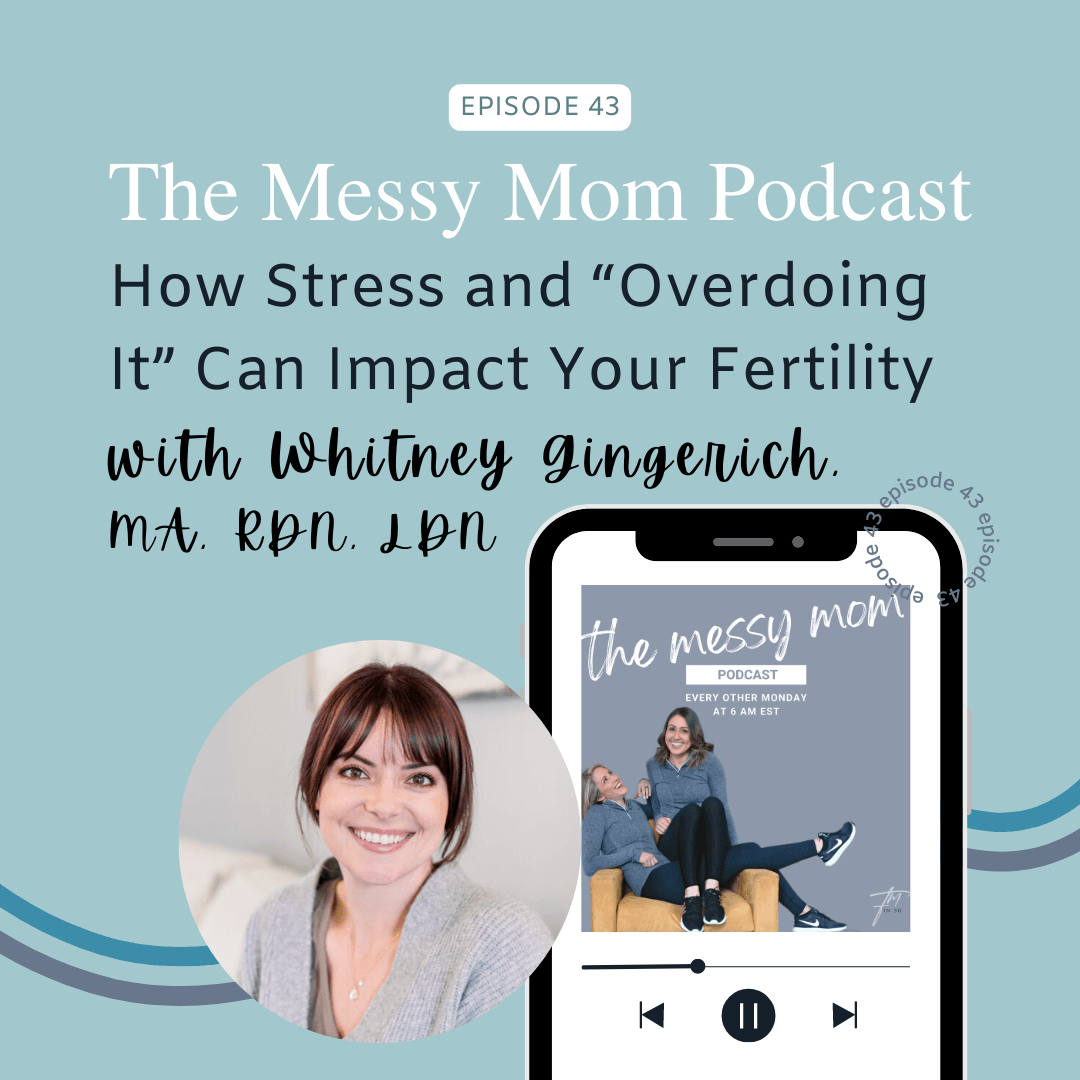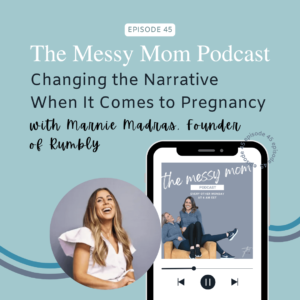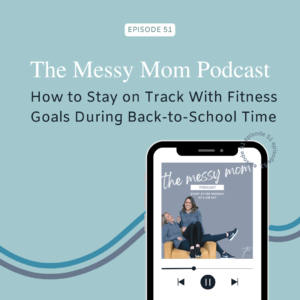CLICK PLAY TO LISTEN TO HOW STRESS AND “OVERDOING IT” CAN IMPACT YOUR FERTILITY:
How Stress and “Overdoing It” Can Impact Your Fertility
As we welcome the month of April, we also acknowledge that it’s allergy season, which unfortunately has taken away Bailey’s voice. So, this week, Cari is joined and welcoming back special guest, Whitney. She has a unique background as a registered dietician turned fertility coach, helping women in their journey to get pregnant. She was born and raised in the Midwest then attended Ohio State, where she studied nutrition, dietetics, and human ecology. Today, she owns her own business, resides in Indiana with her husband David, and is a mama of 2.
Whitney brings valuable insights to the conversation, shedding light on how stress can impact fertility. And this conversation is stemmed from the realization that we often put immense pressure on ourselves in this aspect of our lives.
Join us in this episode, where Cari and Whitney delve into the topic of fertility. They discuss how stress can impact fertility, the potential effects of overly focusing on clean eating and exercise, signs of “overdoing it,” and much more.
How Overall Stress Impacts Fertility
The first time we had Whitney on the podcast, we discussed secondary infertility. But today, we are going to talk about how stress impacts everything in your life and how that folds into infertility. So, Cari asks Whitney, “How does overall stress impact fertility?”
Whitney starts by looking at what kind of stress we are talking about. When it comes to stress relating to fertility she isn’t talking about a one-time deadline, holiday event, or things like that. It’s the chronic things that add up over time. For example, a commute, a job you don’t like, working 12-hour days, your boss is on you all the time, or maybe you have terrible co-workers.
She points out, “That kind of stress, then add on top poor sleep and nutrient deficiencies. So when we talk about stress there is a good kind of stress, the kind that I call “a fire under your ass” kind of stress – get things done like ‘okay, I have a deadline I got to hustle and get this done’. It’s the all-the-time stress that’s not getting resolved. There’s no downtime and oftentimes the chronic kind of stress is the kind that accompanies fertility struggles because especially if you’re the female, is something that you are aware of every single day. You wake up you’re like all right, what cycle day is it? Am I close to ovulating? Am I in my two-week wait? Am I bleeding? Do I need to take a pill or a medication of some kind?”
As she called it “circling the same drain”. Chronic stress does a doozy on our hormones and can impact our health in a strong way. At the same time, we think it’s important to acknowledge, it’s sometimes the most frustrating thing to address because it’s not always tangible. You can’t always quit your job, stop your commute or leave your family. There are things in your life that aren’t always flexible. So, getting out of that chronic stress cycle is much harder than following a diet or taking a pill because it’s something that you have to work on all the time.
Cari agreed as she looks back on her own life. She got married at 25, but they weren’t ready to have children and decided they wanted to wait until around 30. So, you spend all that time not ready, not ready, and then when you are ready, it’s time. So, when they went to have their first child, she was on Clomid, but her cycles were fine and everything was fine. She feels it was more in her head of the timeline of “Oh no, we said now is the time.” Because with her second baby, there was no effort, it just happened and nothing changed.
And Whitney reminds us that it’s true, we put a lot of pressure on ourselves. By the time we decide to have children, we are kind of ready to do it, now. Even if you are thinking, I am just going to see what happens in the back of your head you are like, “All right I’m ready to get this show going.” So, when we do decide that it’s the right time (which there’s no right time) but when you do decide it’s time, we’re ready to move forward quickly as opposed to waiting.
Overly Focused on Clean Eating and Exercise
The stress of life, your job, and your family can be a lot. But another thing a lot of people who are ready to have kids start thinking about is how can I be my healthiest. So, Cari asked Whitney, “Do you think being too focused on clean eating and exercise in this routine can also have an impact on fertility?”
And she loves this question as there are a lot of women who are used to this idea, “If I work hard, I get what I want, and if I haven’t gotten what I want yet I just need to work harder. Then we take that same energy into our fertility and it does the exact opposite. So instead of working for us, what we do is increase our cortisol levels. We increase our adrenal stress. We put a lot of pressure on our thyroid and we just keep going, pushing harder, and pushing harder. We hire more experts, we take more supplements, more fertility teas and we really just go at it.”
Whitney herself has never met a woman who is not doing enough to get pregnant. From the ones she’s worked with most of them are doing too much. “When we talk about fertility it goes against everything that we were taught growing us as far as health goes. The eat less, move more, intensity workouts, making yourself sweat during your workouts that kind of stuff. We’ve got to take a little bit of a different approach when it comes to fertility because your fertility likes a little bit lazy. She likes a little bit of cushion.”
And she continues, “She likes a little bit of safety, security, and calm. So, when we talk about interventions for fertility. Yes, we want to be taking action steps but not obsessive steps. So, I always think if you are in the thick of it, if you’re in the eye of the storm, trying to get pregnant and kind of like trying to do it all. It’s time to hire someone who can calm that storm down and identify the areas that are important for you to focus on. So, instead of trying to do it all, you’re just focused on what you need to be doing because what you need is not what Sally down the road needs. No two women that I work with need the same things.”
So, yes you can be doing too much and she sees that more often than women not doing enough.
Signs of “Overdoing It”
That led us right to Cari’s next question, what are some signs or symptoms of “overdoing it”?
Whitney explains this has been happening our whole lives. You get praised for not needing a lot of sleep, pushing yourself more, taking an extra class, adding another job, or getting another certificate. We’ve got a pat on the back for going the extra mile. And for her to tell women, “Hey I need you to dial it back in” can be a surprising challenge for a lot of women.
And Cari follows up on that same question, “How do you know though, like to me it feels like everything is on track? What might be some signs of overdoing it?”
Whitney highlights a couple of easy indicators to watch out for. The first one she would notice is if you are getting a good amount of sleep and you still wake up absolutely exhausted. It doesn’t matter if you get 4, 10, or 12 hours of sleep, you are still dragging the whole day.
Another red flag is when you’re feeling extremely tired but struggling to fall asleep when you lie down. You’re exhausted from the day but your brain is wired. She also points out afternoon crashes are a dead giveaway as adrenal glands are struggling to keep up with your production level.
When it comes to menstrual cycles, Whitney explains that irregularity is common. A regular cycle typically has consistent lengths, with the beginning of the cycle marked by the first day of your period and ending with the start of your next period or a positive pregnancy test. Your cycle should be fairly consistent within 3-5 days. If your cycle lengths vary significantly such as having 25-day cycles consistently and then suddenly having 20-day or 30-day cycles, it could be an indication of inconsistent ovulation and a sign that something needs to be addressed.
Note: these are just a handful of signs to consider.
So, remember it’s more common for women not to have a 28-day cycle than for them to have a 28-day cycle. That’s why with predictor apps most women miss their ovulation window. Then the panic and obsession start to creep in as you may not ovulate the same as someone else. What’s your normal is not another’s. So, if we can educate ourselves on what our normal ovulation is, and the timing to begin with, that can cut an enormous amount of stress from the get-go.
Whitney reminds us, “We can be really quick to sink into that belief that we’re broken. Especially since we’ve been told most of our lives our bodies are wrong in some form. It’s either too big, too small, or not the right shade. There are a lot of influences that we’ve had. And when we can’t get pregnant or if our ovulation isn’t like “when it’s supposed to happen”. We’re real quick to start judging ourselves. And unfortunately, with conventional medicine, it sort of affirms and confirms that belief system like ‘Oh you’re broken’. You’re not following this exact model like you need these 5 things to get pregnant.”
Where to Start
Cari wonders then, if someone is interested in getting started, where do they begin and what does the process look like?
Whitney says “It doesn’t matter how perfect your diet is if your lifestyle isn’t supporting your hormones as well.” So, she looks at food, movement, mindset, supplements, and the environment. All the different aspects of your fertility that you can control.
When it comes to her 1-on-1 clients, she always starts by having them tell her about what a typical day looks like. What time are you getting up, what time do you eat breakfast, what kind of breakfast, are you feeling hungry, are you energized – there are a lot of feelings and trying to mold and design your life to work with what your goals are.
So, if you want to get pregnant, she says, “We have to kind of pretend like you’re already pregnant and take those lifestyle steps that support your fertility because the things that help you get pregnant are the same things that help you stay pregnant.”
Advice for Women Going Through This
Cari asks, what is her one piece of advice for women who are right now struggling, probably know they are overdoing it, trying everything, they’re deep into trying to get pregnant and it’s just not happening.
Whitney’s number one piece of advice would be, “Knowing that you have options. So, at least in the U.S. when we see our OB/GYN, it’s a straight shot to IVF. You’ve got some fertility medication options, they’ll try that for a few months, maybe move into an IUI and then IVF. And it reminds me of a conveyor belt like you check these boxes and then you’re going to land here. There are so many steps that you can take ahead of time and you have more control over your fertility than you know. You have so many diet, lifestyle, and natural interventions that can support you. Not only just to improve your fertility but to improve your entire how you show up in the world, and how you’re feeling every day.”
And she continues, “I always just like to let women know that there are more options than just conventional options. And not only that but you have more control than you’ve been led to believe. The system has set it up like that, the lack of sex education or reproductive education. There is a lack of knowledge that we have, so we are relying on other people to lead us through this process. So, I am here to tell you, you’ve got a lot of control over this.”
We want to thank Whitney for taking the time to chat with Cari again. If you enjoyed these nuggets, check out her free masterclass that she offers on 3 secrets you won’t get from your OB/Gyn to keep your knowledge going.
This is only the beginning of our conversation on how stress and “overdoing it” can impact your fertility with Whitney. Listen to the full episode wherever you listen to your podcasts.
Resources mentioned:
- Whitney’s Episode on Secondary Infertility
- Whitney’s free Masterclass on “The Fertile Tea: 3 secrets you won’t get from your OB/Gyn”
- If you want to learn more from Whitney you can find her on Instagram or TikTok @thefertilitynut. Or check out her website https://thefertilitynut.com/
- Find us over on Instagram @fitmamain30
- Try any of our Fit Mama in 30 programs completely free for seven days. And if you decide you want to stick with us after the seven days, you can get $10 off your membership with the code PODCAST at checkout.
This information is meant for educational and informational purposes only. You should not use this information to diagnose or treat any health problems without consulting your personal medical practitioner. Always seek the advice of your own medical practitioner about your specific health concerns and needs.





